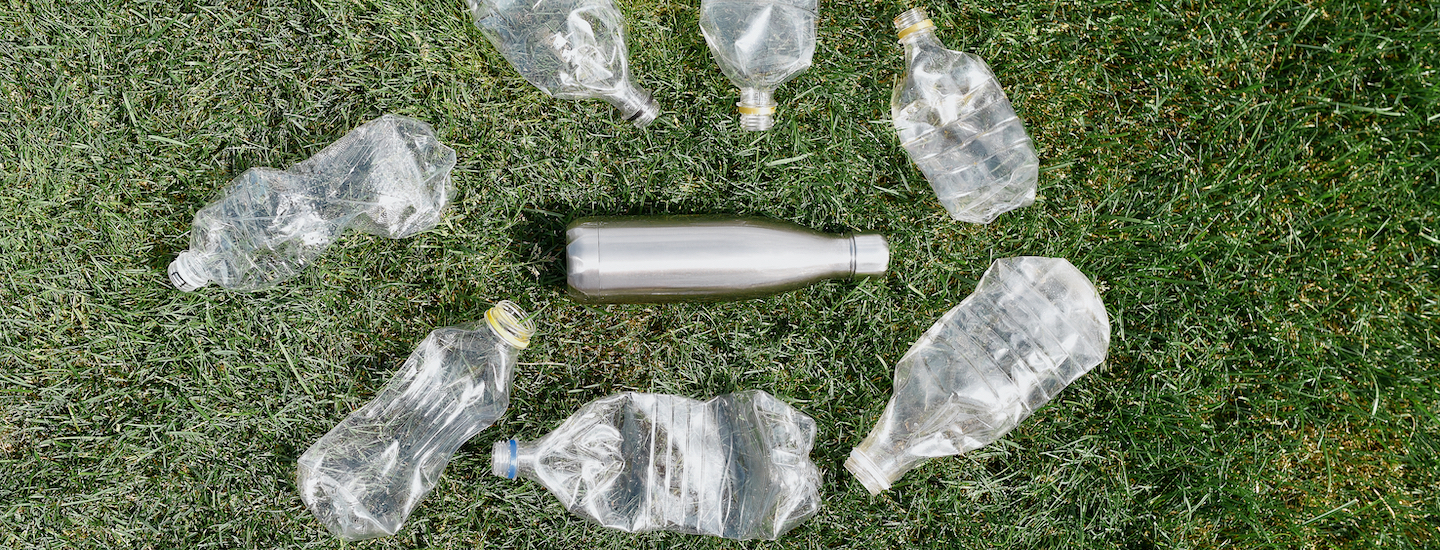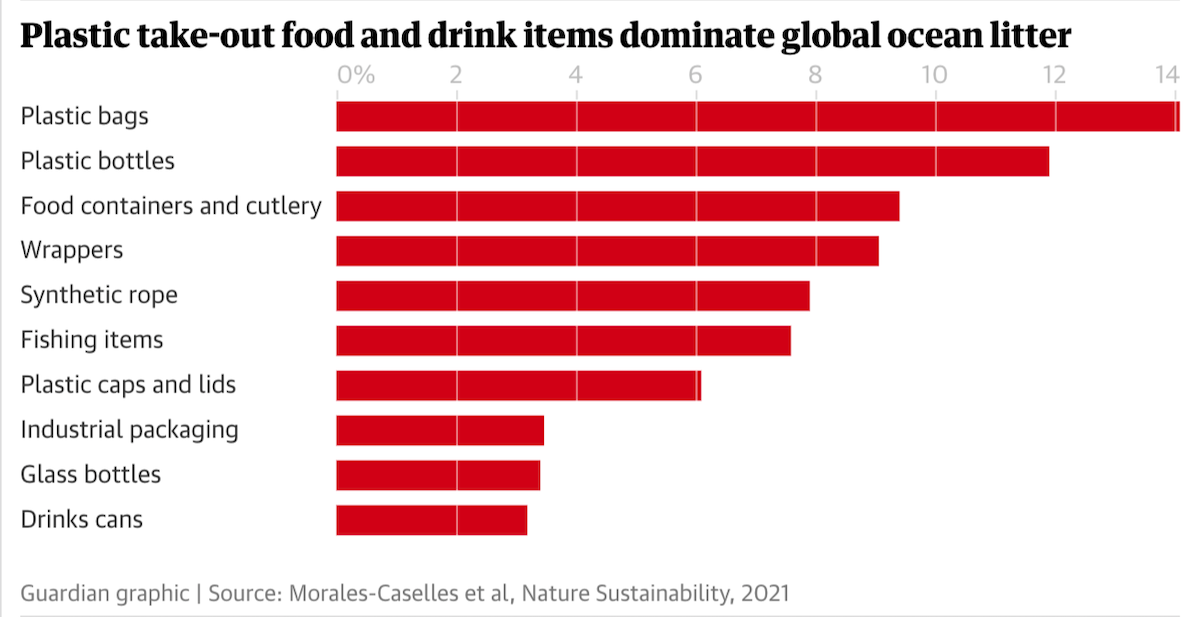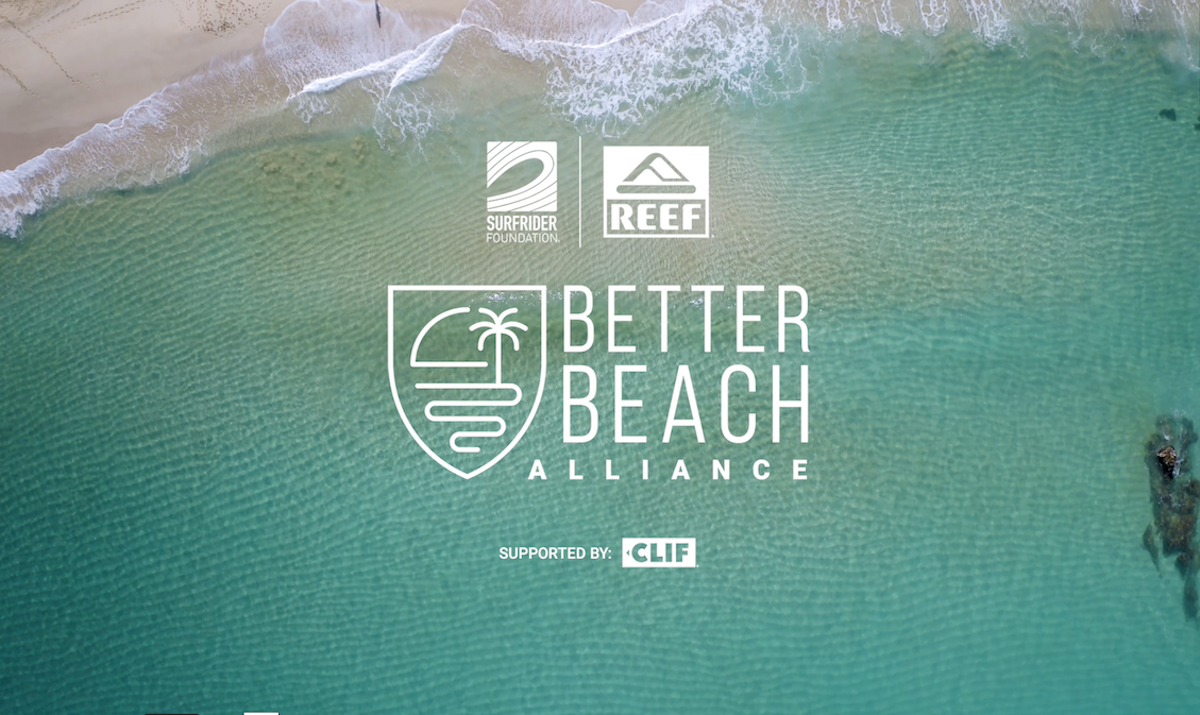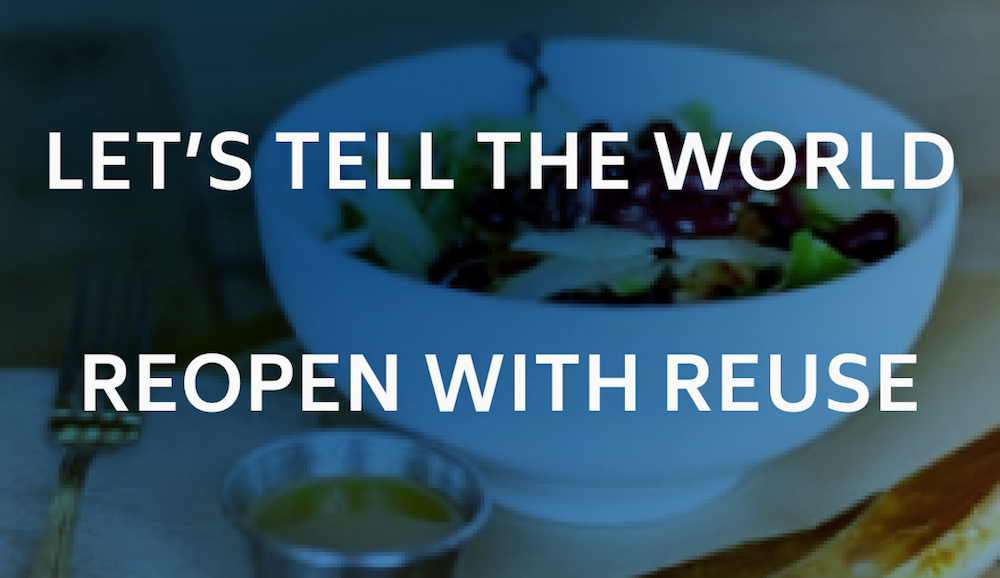
Single-use plastic became a big part of our lives during the pandemic, and that doesn’t come without consequences. With this in mind, it should come as no surprise to find that takeout waste is dominating ocean pollution. According to a new study, which closely mirrors the results of Surfrider’s own Better Beach Alliance cleanup program, plastic items make up the majority (80%) of litter found polluting the aquatic environment, based on counts. More importantly, the top four sources - plastic bags, bottles, food containers/cutlery, and food wrappers – account for almost half. According to the study, just 10 categories contribute to three-quarters of all worldwide aquatic litter. Here’s the twist – the data used for this study was collected prior to COVID-19! We can imagine that these numbers would be even more shocking now.

How did this plastic get onto our coastlines and into our ocean in the first place? Not all pollution comes directly from littering. Even if you put your trash in the appropriate bin it can escape and be carried away by the wind at any point from your home to the sorting facility to the landfill or incinerator. Plastic is especially susceptible to leakage from the waste management system since it is very lightweight. Natural disasters and storms can also displace large amounts of plastic waste. Landfills themselves may overflow and plastic can spill directly into the surrounding area. The ocean has also been used as an illegal dumping ground for years. Check out this video produced by our Better Beach Alliance to learn more about how plastic becomes pollution.

The good news is that we can live without plastic bags, bottles, containers, cutlery, and wrappers. We can and we must. That’s why we’re calling on our beloved restaurants, festivals, and national parks to reopen with nontoxic reuse. Sign the Reopen with Reuse petition to tell the CDC that we believe the science that proves reusables are safe and we need their support to convince restaurants to reopen from the pandemic with reusables as a priority. Not only are reusables healthier for us and better for the environment, reusables can save restaurants between $3,000 - $21,000 every year. For instance, with incremental change, globally replacing just 20% of single-use plastic packaging with reusable alternatives offers an opportunity worth at least $10 billion - critical savings that can be passed along to support food service workers and small businesses. Ultimately, reusable practices should be the norm, not the exception.

This is why Surfrider is so invested in tackling single-use plastic, especially foodware. The majority of our campaign victories support the transition from wasteful single-use to durable reuse. This mentality is also reflected in our Ocean Friendly Restaurants program. We recognize restaurants that are committed to cutting out wasteful single-use plastic and offer a simple, straightforward framework to help them make sustainable choices for our ocean. The result is a community of like-minded restaurants we can promote, support, and lift up as examples of success to influence plastic reduction legislation. The larger we grow our network of Ocean Friendly leaders, the more mainstream the concept of plastic-free becomes.